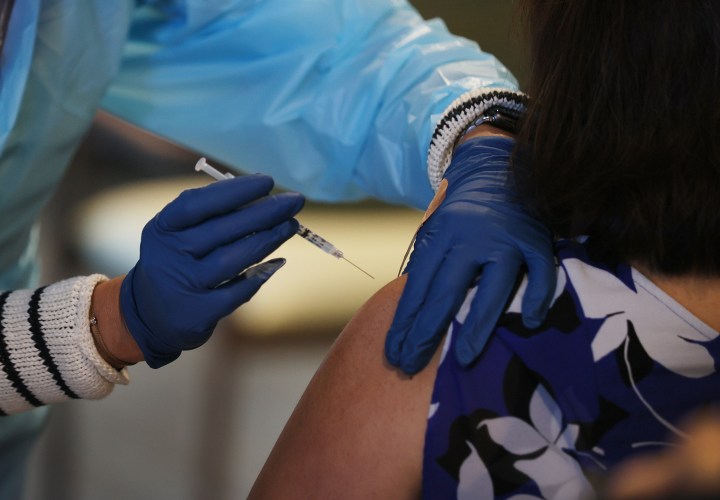
Getting a COVID-19 vaccine is still free — if you know where to look
Share Now on:
Getting a COVID-19 vaccine is still free — if you know where to look

COVID-19 infections, hospitalizations and deaths are still elevated, the Centers for Disease Control and Prevention says, with the new JN.1 variant accounting for a majority of cases.
There were more than 32,860 COVID-19 hospital admissions in the second week of January, although weekly hospitalizations declined by 9.6%, according to CDC data.
JN.1, a variant of the Omicron strain, accounts for 85.7% of cases in the U.S., rising from about 60% in early January. However, the CDC has seen no evidence that it causes more severe disease than other variants.
More than 21% of adults in the U.S. have reported receiving the updated COVID-19 vaccine, according to the CDC. The public health agency recommends getting an updated vaccine from Pfizer-BioNTech, Moderna or Novavax to guard against serious illness.
The agency has a program meant to ensure that everyone can access free COVID vaccines, but some sites that offered vaccines for free in the past may now begin charging for them, depending on your health coverage.
Here’s what you should know to make sure you can get immunized at no charge.
Where you can go to get a free COVID-19 vaccine
The U.S. Health and Human Services Department has a website, Vaccines.gov, to help you find places where you can get vaccinated. If you have health insurance, HHS says, check with either the location or your insurer about whether the shot will be covered.
If you’re uninsured or your coverage doesn’t fully cover the cost, Vaccines.gov. lists locations that are part of the CDC’s Bridge Access Program, which offer free vaccines to everyone. The program will end by Dec. 31.
Why do some locations no longer offer free vaccines?
Congress failed to authorize further funding for COVID vaccines, so Americans who want them now rely on the commercial health care system.
Adults with health insurance may be charged for getting the vaccine from an out-of-network provider, said Jen Kates, the senior vice president and director of global health and HIV policy at the Kaiser Family Foundation.
Without insurance, a shot can cost more than $100, in some cases close to $200.
But Kates said if you go to an in-network or participating provider, you are guaranteed a free COVID vaccine. The Affordable Care Act requires health insurers to provide free vaccines that are recommended by the Advisory Committee on Immunization Practices.
Sabrina Corlette, a research professor at Georgetown University’s Center on Health Insurance Reforms, said if you’re insured, get your COVID vax at an in-network provider but end up being billed anyway, don’t pay it.
“Something’s not right. So you should, at a minimum, question why you’re getting a bill,” Corlette said.
What happens when the Bridge Access Program ends?
Next year, uninsured adults may face financial barriers unless there’s an interim solution, such as additional funding from Congress, Kates explained.
While uninsured children are able to get free recommended vaccines under the federal Vaccines for Children program, Kates said there’s no analogous program for adults. The Joe Biden administration has proposed the creation of such a program twice, she added, but Congress has not acted on it.
Corlette pointed out that uninsured people already face many challenges in trying to access health care.
“This would just be added to that very, very long list of things that you’d have to pay out of pocket for unless you have insurance,” Corlette said.
There’s a lot happening in the world. Through it all, Marketplace is here for you.
You rely on Marketplace to break down the world’s events and tell you how it affects you in a fact-based, approachable way. We rely on your financial support to keep making that possible.
Your donation today powers the independent journalism that you rely on. For just $5/month, you can help sustain Marketplace so we can keep reporting on the things that matter to you.












